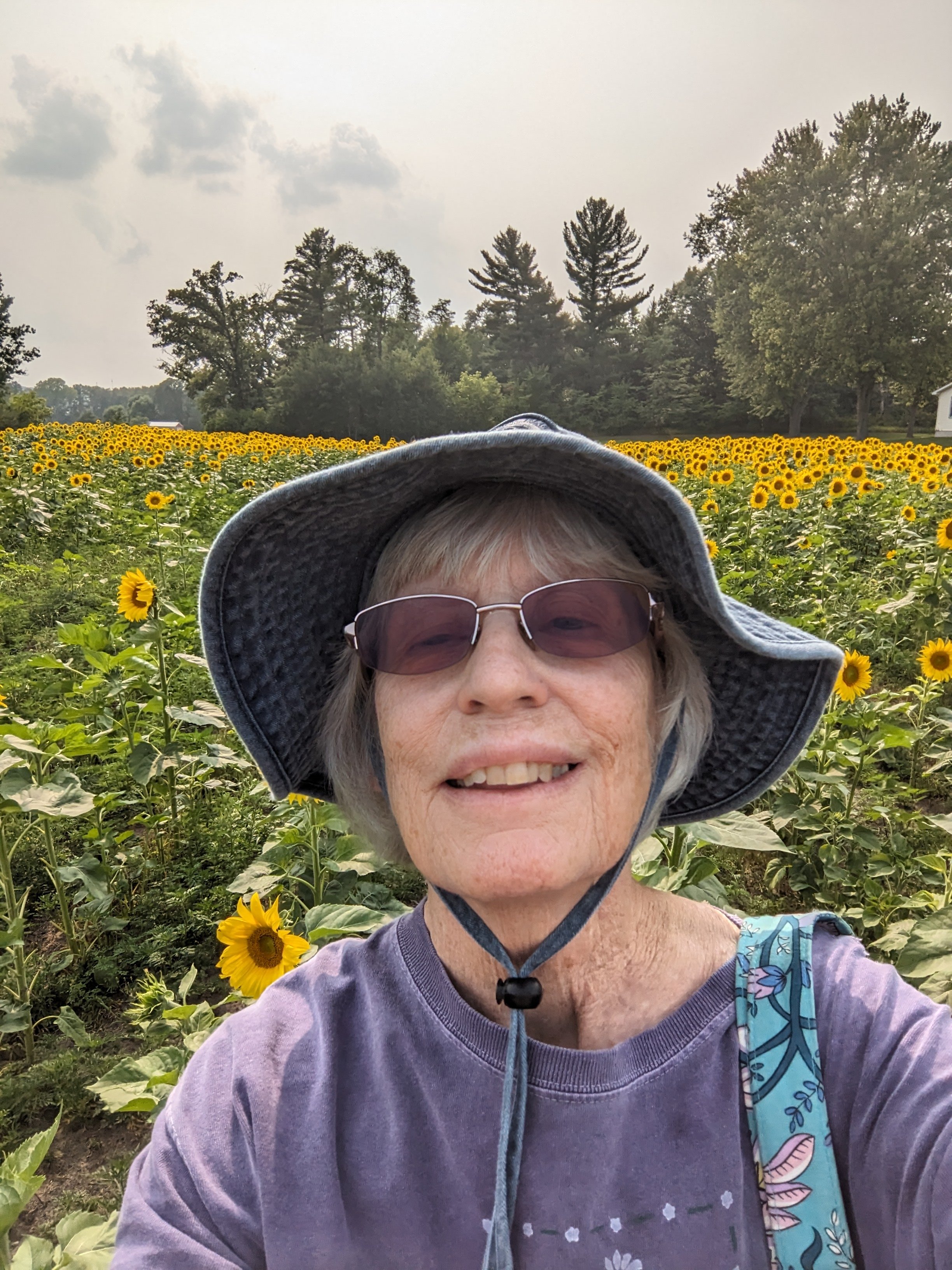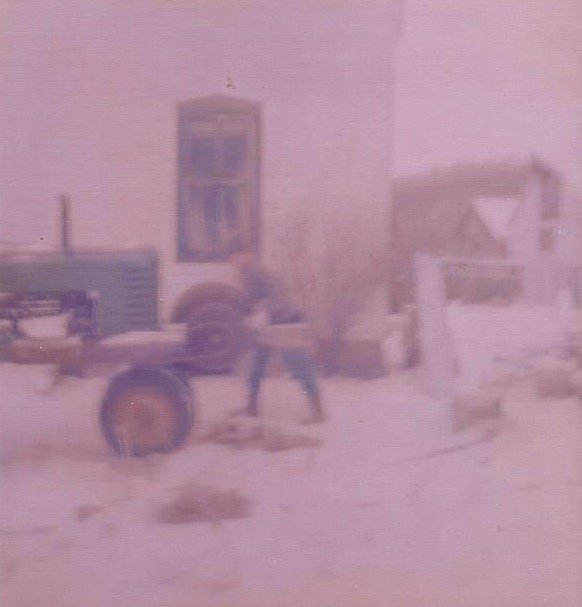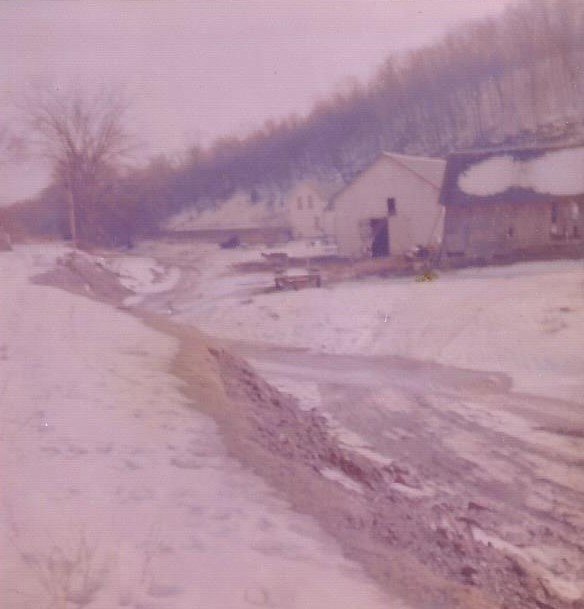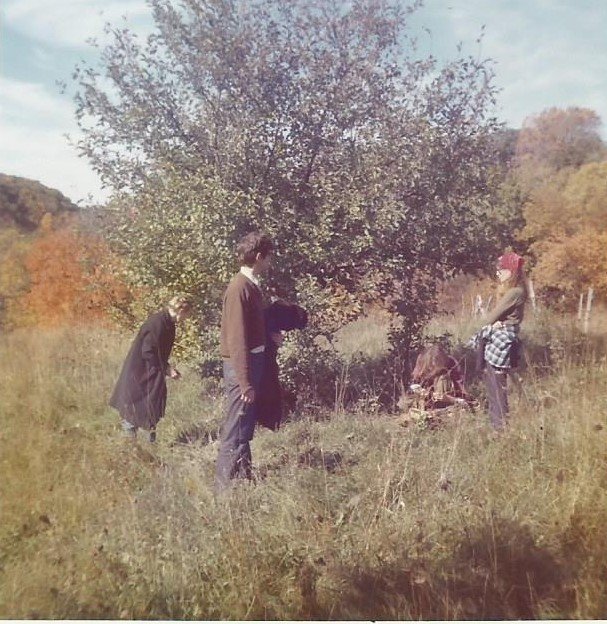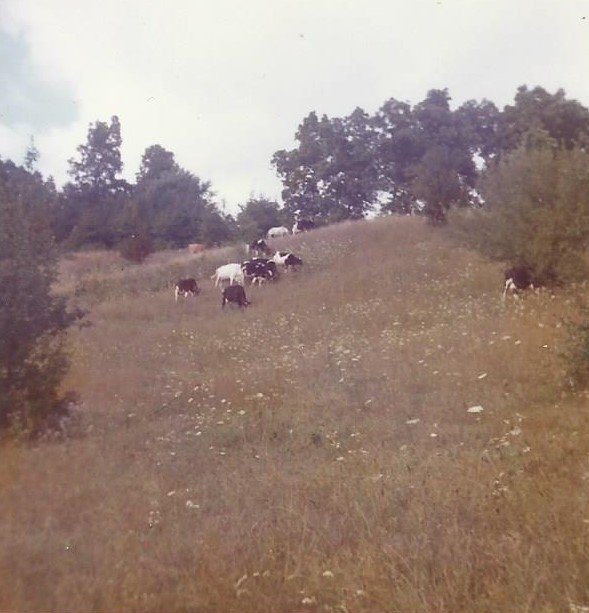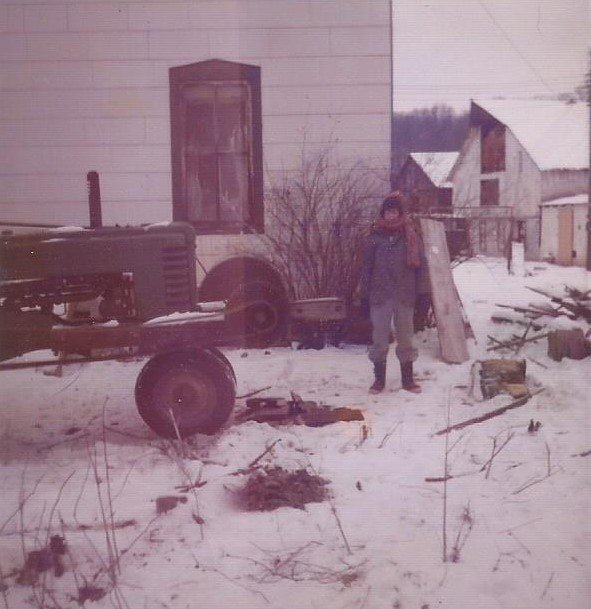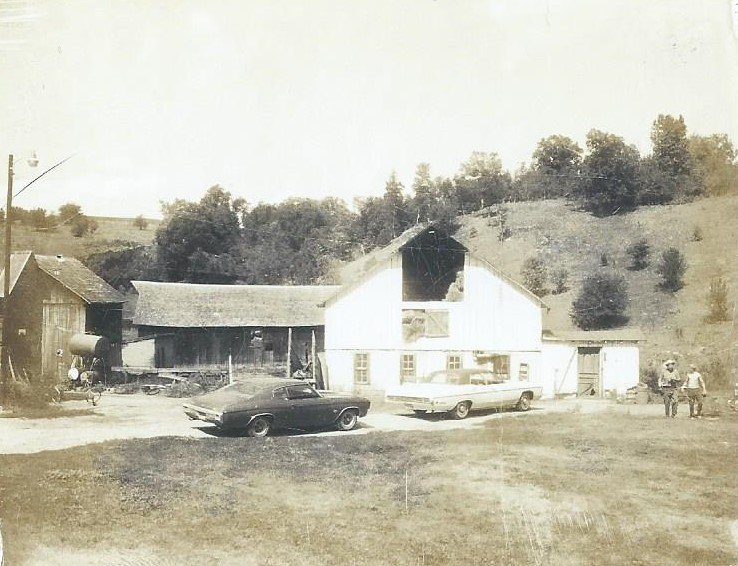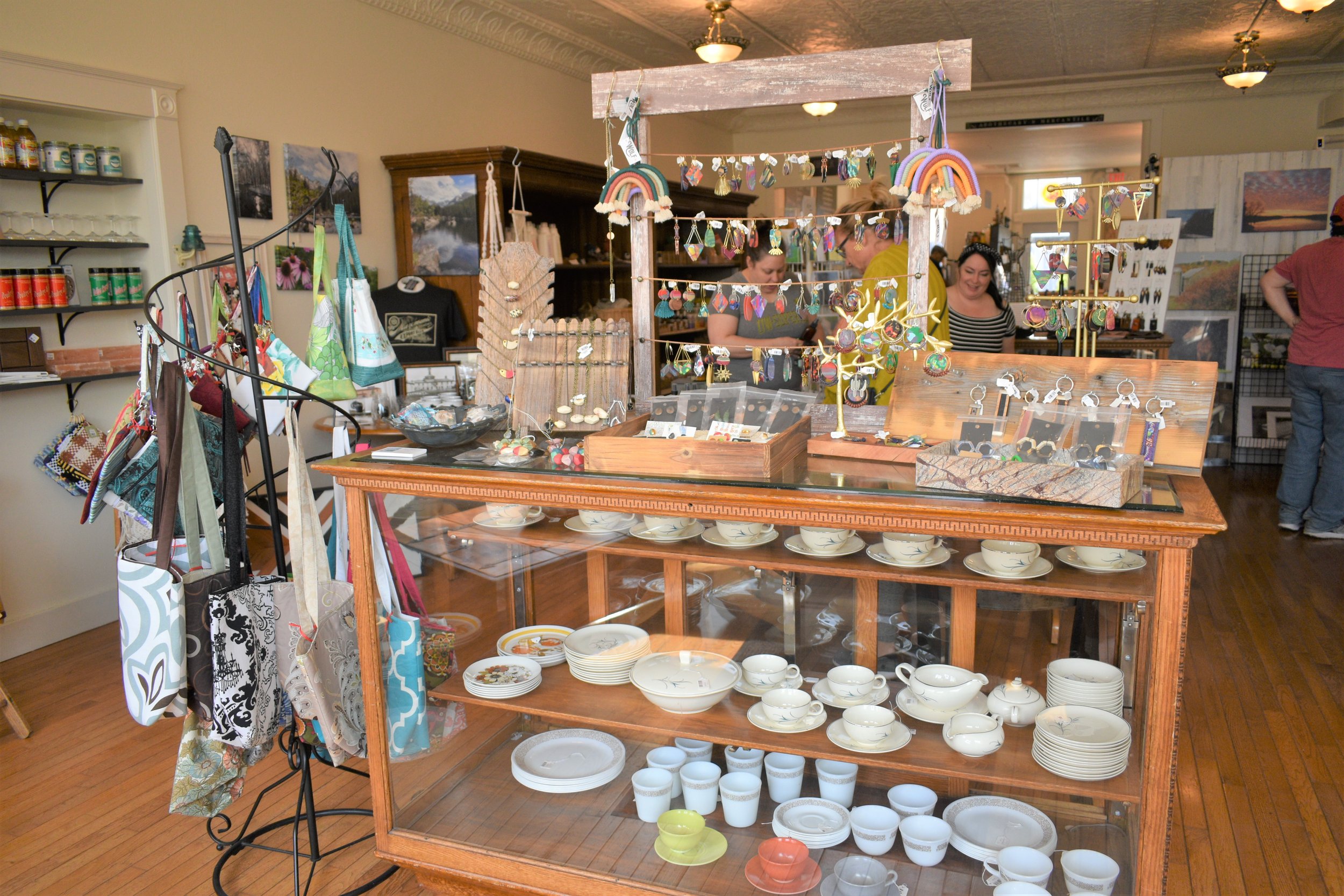From urban to rural: A transplant story
Urban living, rural living. It is a personal choice that may carry few or many personal reasons.
In the early 70’s, Carol Bezin, who now lives in Central Wisconsin, and her then husband, made the leap in to rural life, moving from Chicago to Readstown, Wisconsin. Both had grown up in the city.
Carol and her husband had taken interest in “Mother Earth News”, a periodical dedicated to sharing news and information on homesteading, sustainable living, organic gardening, natural health, live stocking, etc. “It’s (Mother Earth News) about getting back to the land, growing your food, making everything from scratch, and raising animals for your food,” said Carol.
She and her husband did the best they could living in an urban setting to follow suggestions from the periodical. “We would drive out to the outskirts of Chicago where there were forest reserves and we somehow found there were grapes growing there and we picked them. We did what we could in Chicago. We would go to the forest preserves, pick the grapes, and make our own jelly.”
Carol and her husband’s dream, eventually became to buy a farm and to have that farm support them. “We would be able to live a lifestyle we wanted to, living off the land and we'd be in the country, we'd be out of the city where the air was clean and there was less crime. We wanted that kind of life.”
So, they went looking at farms in Michigan. She recalled there was a fruit farm that they had looked at, but it was not what the couple wanted to get into. As a boy, her husband had gone to his grandfathers in Minnesota who had a dairy farm. Her husband had learned the working elements of the farm and figured he had learned enough for them to buy their own dairy farm and make it work. “We had a friend that invited us to come to Wisconsin to visit, and that was in Baraboo. So, we went there and we loved the hills. It was so beautiful. Somehow, looking for farms for sale, we found one in Readstown, near Viroqua.” They moved to the farm in 1973, but Carol noted they had probably bought the farm a couple years before that, putting money down and then paying until the property was paid off. “When I walked on our land, it was the first time I had ever owned land, because in Chicago, we had always rented. To own land was a childhood dream of mine. I thought you sit under a tree with grass and you could read a book. No one mentioned insects or anything like that. But the first time I walked on our land, it was a thrill I'll never forget. It's like, this is our land. Nobody can make us leave, it's ours,” she said smiling.
The idea of organic farming had caught their attention as the way they wanted to farm. “We sort of absorbed the importance of it through Mother Earth News, and would go to health food stores. I think somehow, we just knew we wanted to follow those practices. We learned about pesticides and chemicals, and just how harmful they are to the soil, to the animals, and to the crops. We didn't want to be a part of that.” Carol stressed, at the time, they were not aware of a certification process, but shared that they followed organic practices on their farm. “We didn't know at the time of organic certification, but we were, I would say, early organic farmers in the area. Becoming certified organic we never heard anything about. We really weren't in farming long enough to know, because we started in 1973 and were farming until the summer of 1975.”
During the time they were running their dairy farm, the milk market was volatile much like it is today in Wisconsin. “At the time they were dumping milk, we just happened to go into farming at the same time. Farmers were unionizing themselves and dumping milk because the price was so low.”
Carol’s children also had exposure to healthy rural living. “My daughter was with us from 1973 to 1975 when we had the farm. In 1974, my son was born. That's a challenge when you're farming and you have a baby, because you have to be safe in the barn. You can't leave the baby alone. I marveled at farmers at how they manage with the number of kids and be out farming because it's difficult.”
Carol said they found out quickly one of the drawbacks of farming, the cost. “Farming is hugely expensive. Boy, you have to invest in the equipment, and if you needed equipment, you got used equipment and it probably would break down. You'd better be mechanical and know how to fix it.”
In addition to being expensive, farming is inherently labor intensive and time consuming. Carol recalled there were no days off saying, “It's all farming, seven days a week. We had to look for our cows every morning and every evening because our cows were outside. We didn't keep them in the barn like these modern environments do. We would have to find them and sometimes it would take going up and down a couple of hills and looking, and it isn't like you find them in the same place and bring them back. It was quite a process. I learned quickly the cows would knock the fences over and eat the corn crop and we would have to spend time repairing those fences.” Carol said they also had chickens, rabbits, goats, and eventually a horse and pony, all adding to their work load. Carol recalled taking care all the animals, at times, to be really challenging.
After farming a while, Carol and her husband met with their banker who told them they would not be able to make it on their 40-acre farm. The banker, then encouraged them to buy a bigger farm. “So, we bought a 100 farm near Bloomingdale, which is near Westby and moved. We couldn't sell the first farm so we were really struggling, because we were paying the mortgage on the second farm. I mean, we practically went bankrupt. I can see where farmers get depressed, because you're working hard seven days a week and you have less money than when you started. I can understand that. You want to be a responsible person and pay your bills, and with farming, there's always more that you need that you haven't got money for. We didn't have a baler. So, we would do hay for our neighbor, he had a baler. I mean, we were haying for him just so we could use his baler to put up our hay. That’s just one example of something you need to farm.”
Carol said farming helped them provide their food. “We picked black raspberries growing next to our crop fields, canned tomatoes, made our own pickles. I mean, we did do those things. We made all kinds of dairy products. We even tried making goat cheese from scratch. It was good to have our own milk for ice cream and rich milk that you couldn’t get otherwise.”
All in all, albeit only for a couple years, Carol and her then husband did what they came to do. “We did manage to make the move from Chicago. We tried to grow organically, and live as close to the earth as we could.”
She said it was a good experience, but admitted in farming, you don't realize how much help you need until you're in that position. “It really strengthens your character and your faith. I appreciated nature the whole time. It was good to be outside.”
When asked why they got out of farming Carol replied, “Well, life happened, personal things happened that required a change. I think everyone should farm for a year or two, because the general public, I don't think, has any idea what farming is like, and we were a small farm. I mean, I have friends now, they have 100 cows, and we only had a dozen. But then again, we didn't have a modern milking system with piping and all that either. We did our milking directly by hand, and that barn isn't all that warm in the wintertime. You're in the cold barn and you're cleaning off the udders, it's not Hollywood, it's a lot of work and it's a rough life. It's an experience. It was a chapter in my life and I have real respect for farming people. They would help us out, we would help them out. I think that's the way people should be. You don't get that in Chicago. People are good out here, they're just good strong people that have morals and values and ethics. I never went back to Chicago, ever. So, I'm not sorry. I'm glad that we had our farms,” she said with a smile.
